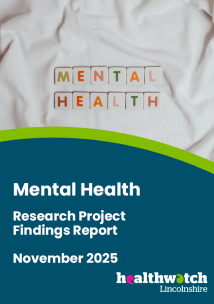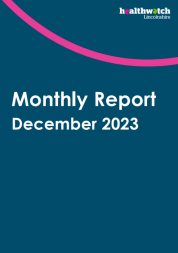Mental Health in Lincolnshire Research Project Report

These were chosen for their substantial presence in the county, the fact they are often underrepresented in mental health discussion and face unique, often unmet needs.
However, individuals who did not belong to one of these groups were also welcomed to share their mental health experiences.
In total 86 service users and 2 health and care professionals shared their views.
- 40% (33) were veterans
- 18% (15) were from military families
- 12% (10) worked in farming/agriculture/horticulture
- 18% (15) were new fathers
- Some individuals belonged to more than one of the above groups.
Key headlines include:
- Stigma - there was often a stigma around seeking mental health support, including being too busy and it being taboo (farming), not being used to asking for help, and asking for support not being ‘macho’ (veterans).
- Barriers to accessing support - these included long waiting times, not meeting the criteria and lack of information.
- Online resources - online information was often easy to find and navigate. However, respondents frequently felt that the information was generic and they would prefer face-to-face support.
- From support to uncertainty - respondents discussed that there was often a sharp transition from receiving support to being left with minimal-to-zero help once support ended. They highlighted a need for a more gradual transition period.
What works well?
Positive experiences reported by respondents appeared to be due to the actions of individual healthcare professionals as opposed to a consistent equitable approach.
There was praise for specific individuals and charities that provide support to veterans in a timely manner and understand their needs.
What could be improved?
- Quicker and easier access to support
- More face-to-face or person-based support rather than online
- Options beyond medication
- Better communication between services and joined-up working
- Improved continuity of care during support and a smoother transition when support ends
- Address mental and physical health at the same time
- Support to tackle the root causes and issues that persist beyond medication and therapy
Read the full report, along with the detailed response by Lincolnshire Partnership NHS Foundation Trust below.

